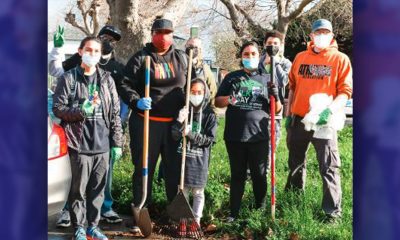Community
Martin Luther King Jr. Day of Service Observed Throughout Oakland
Jan. 18, 2021, marks the 26th anniversary of the MLK Day of Service, held nationwide to observe and celebrate the late Martin Luther King Jr.’s life and legacy. The iconic civil rights leader would have been 92 this year. King was born on Jan. 15, 1929, in Atlanta, GA.

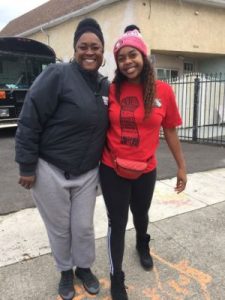
Jan. 18, 2021, marks the 26th anniversary of the MLK Day of Service, held nationwide to observe and celebrate the late Martin Luther King Jr.’s life and legacy. The iconic civil rights leader would have been 92 this year. King was born on Jan. 15, 1929, in Atlanta, GA.
After tremendous activist campaigning over a period of 32 years, King’s birthday was enacted by Congress and signed into law by Pres. Ronald Reagan as a federal holiday in1983. Establishing the MLK holiday was a hotly contested objective with many legislative sponsors often experiencing death threats and property damage.
After a vicious backlash over a three-year period, the lone Black elected official in Utah, state Sen. Terry L. Williams (my brother) was joined by Coretta Scott King, the great dame of the Civil Rights movement, in Utah’s ultimately successful struggle to ensure the state holiday law passed in 1986.
This paved the way for the state of Arizona, influenced by Utah’s action, to complete the 50-state membership of establishing the holiday honoring Dr. King’s legacy in 1993. Various nationwide amendments and name changes for the holiday were finally concluded in 2000.
The MLK Day of Service has been designated as “a day on, not a day off” to encourage all Americans to volunteer to improve their communities. Because of the coronavirus, the city of Oakland extended the service to 40 days instead of one and instead of groups, to work as individuals or families.
Here in Oakland, Khariyyah Shabazz, deputy executive director of the Higher Ground Neighborhood Development Corporation (HGNDC), and Executive Director Amber Blackwell will mobilize dozens of volunteers to clean up areas in East Oakland.
“This will be the 10th year that we have mobilized teams of volunteers to work cleaning neighborhoods throughout Oakland,” said Blackwell. “Registration begins at 8:00 a.m. and our closing ceremonies will be at 1:00 p.m. Volunteers will be assigned to work in teams to perform specific tasks in the cleanup efforts.”
“Projects targeted for HGNDC this year will focus on areas around 10495 Edes Ave. in East Oakland. On this day, we plan to complete five service projects which will include: the Edes Avenue Beautification, Brookfield Elementary School cleanup, Greenway Maintenance, Tyrone Carney Park cleanup, and a food giveaway,” said Blackwell.
“We will also do senior cleaning where we will go into the backyards of seniors and eradiate debris from their property, removing items they have set out to be dumped. Each project will only last two hours depending on how much work there is to be done at each station. There will be a capacity of 10 people per group and we will enforce all CDC guidelines for the entire event.”
“Our plan will be to work in two groups with the first group arriving at 8:30 a.m. for signups. The second group will arrive at 11:00 a.m. for signups. We are asking that volunteers choose only one group to work with. A light snack and lunch will be provided for the volunteers.”
The mission of Higher Ground’s afterschool program is to provide a safe and nurturing space where students are given both the tools and access necessary to be successful in the academic arena, while exposing them and their families to varied cultural, artistic and fitness experiences that build resiliency and develop happy, well-rounded and successful people.
For more information on how you can help with activities during this year’s MLK Day of Service, call 510.230.5120 or visit www.highergroundndc@yahoo.com. Volunteers are asked to register via the website, or can show up on day of event and receive assignments.
Alameda County
Board of Supervisors Accepts Certification of Signatures, Will Schedule Recall Election May 14
The Alameda Board of Supervisors unanimously accepted the certification of the results of the valid signatures submitted for the recall of District Attorney Pamela Price on Tuesday evening. The Board will set the election date at a special meeting on May 14. Before the meeting, recall proponents and opponents held separate press conferences to plead their cases to the Board and residents of Alameda County.
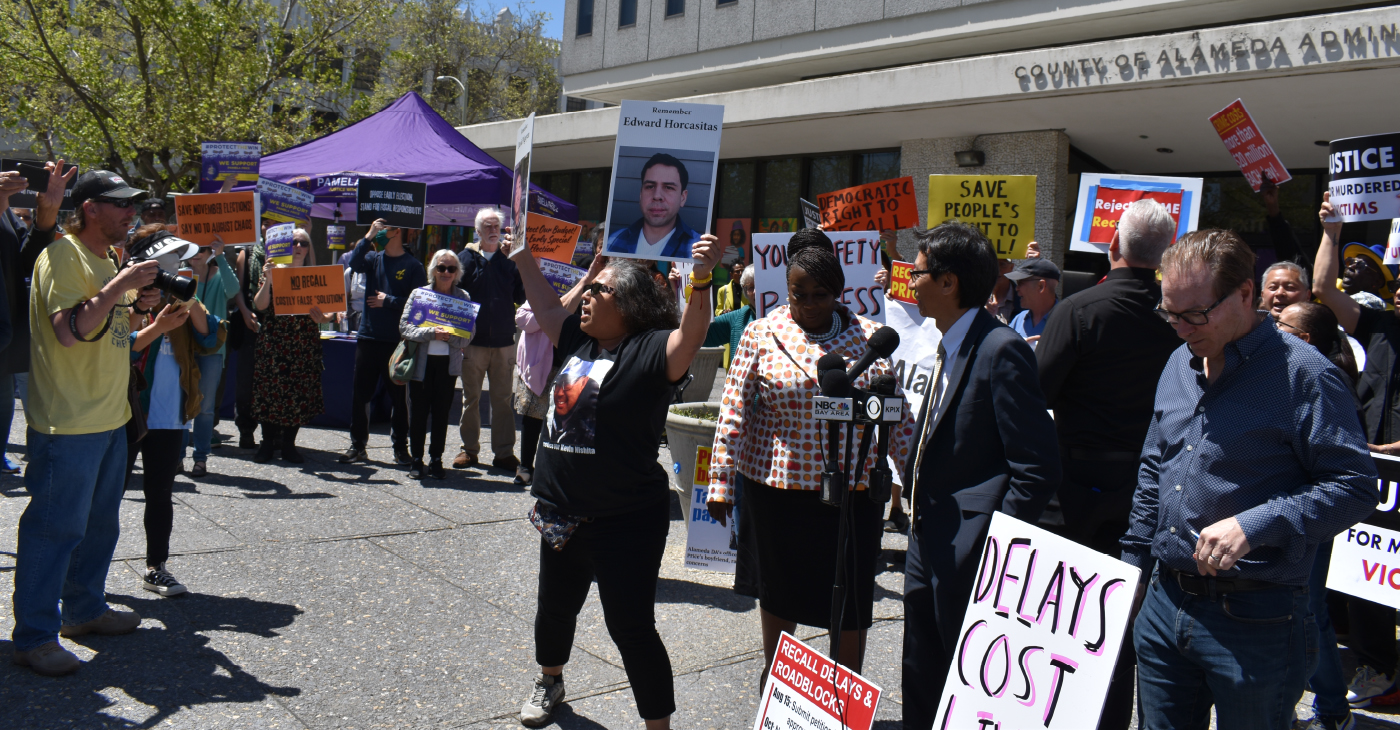
By Magaly Muñoz
The Alameda Board of Supervisors unanimously accepted the certification of the results of the valid signatures submitted for the recall of District Attorney Pamela Price on Tuesday evening. The Board will set the election date at a special meeting on May 14.
Before the meeting, recall proponents and opponents held separate press conferences to plead their cases to the Board and residents of Alameda County.
Price, who up until this point has made little public comment about the recall, held her press conference in Jack London to announce that the California Fair Political Practices Commission has opened an investigation into the finances of the Save Alameda For Everyone (SAFE) recall campaign.
The political action committee (PAC), Reviving the Bay Area, has been the largest contributor to the SAFE organization and has allegedly donated over half a million dollars to the recall efforts.
“Between September 2023 and November 2023, [Revive the Bay Area] donated approximately $578,000 to SAFE without complying with the laws that govern all political committees in California,” Price said.
Price accused the recall campaigns of using irregular signature-gathering processes, such as paying gatherers per signature, and using misleading information to get people to sign their petitions.
SAFE held their own press conference outside of the Alameda County Administration Building at 1221 Oak St. in Oakland, once again calling for the Board to certify their signatures and set a date for the recall election.
Their press conference turned contentious quickly as Price’s “Protect the Win” supporters attempted to yell over the SAFE staff and volunteers. “Stop scapegoating Price” and “Recall Price” chants went on for several moments at a time during this event.
Families of victims urged the Board to think of their loved ones whose lives are worth much more than the millions of dollars that many opponents of the recall say is too much to spend on a special election.
The Registrar of Voters (ROV) estimates the special election could cost anywhere from $15 to $20 million, an amount that is not in their budget.
The Board was presented with several options on when and how to conduct the recall election. They have to set a date no less than 88 days or more than 125 days after May 14, meaning the date could fall anywhere from late July to September.
But the County charter also states that if a general election takes place within 180 days of their scheduling deadline, the Board could choose to use the November ballot as a way to consolidate the two events.
In the event that Price is recalled, the Supervisors would appoint someone to fill the vacancy, though neither the County nor the California charter specifies how long they would have to pick a replacement.
The appointee would serve as district attorney spot until the next election in 2026. Afterwards, either they, if they run and win, or a newly elected candidate would serve the rest of Price’s six-year term until 2029. Price is unique as the only district attorney wo serves a term of six years.
The Board acknowledged that they knew last fall that this recall would come with its own set of complications when Measure B, which changed the local recall charter to match California’s, was first brought to their consideration.
Supervisors Nate Miley and David Haubert opposed discussing the measure, stating that the public would think that the Board was attempting to influence the recall campaign that had already taken off months prior.
“I think ultimately this feels like it’s going to end up in court, one way or the other, depending on who files what,” Haubert said.
Price’s legal team told the Post that the district attorney intended to consider all legal options should the recall election take place.
Miley stated that while he was in support of the amendment to the charter, he did not think it was right to schedule it for the March ballot as it would ultimately cause confusion for everyone involved.
“It has produced some legal entanglements that I think, potentially, could’ve been avoided,” Miley said.
Antonio Ray Harvey
Working Group: More Entry-Level Homes Could Help Solve Housing Crisis
The Community Housing Working Group hosted a briefing on April 23 at Cafeteria 15L in Sacramento. Discussions focused on how the housing crisis in California affects Black and Brown communities and explored ways to provide low-income families and individuals with affordable housing.
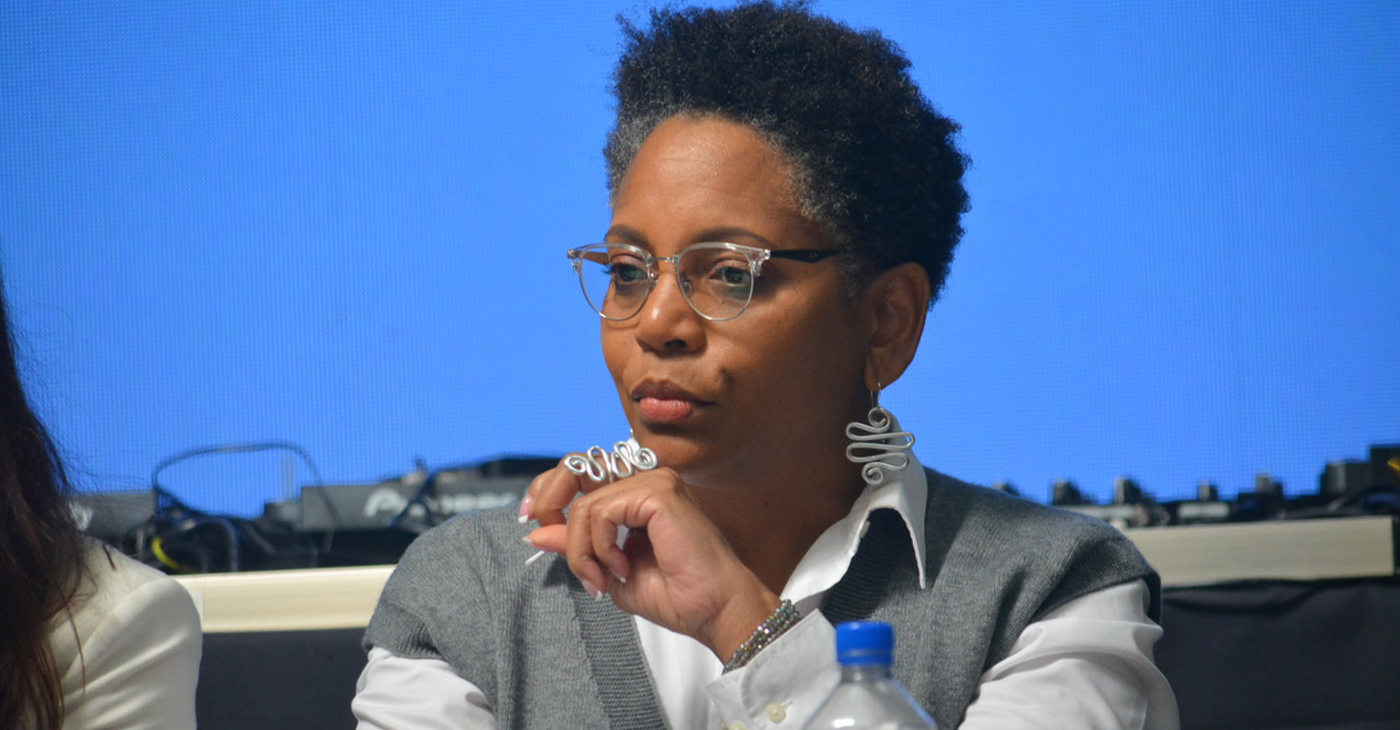
By Antonio Ray Harvey, California Black Media
The Community Housing Working Group hosted a briefing on April 23 at Cafeteria 15L in Sacramento. Discussions focused on how the housing crisis in California affects Black and Brown communities and explored ways to provide low-income families and individuals with affordable housing.
Tia Boatman Patterson, CEO and President of the California Communities Reinvestment Corporation, said “entry-level housing” is not available as it was in the past, adding that affordable units were a major point of entry into homeownership for many families in the Black community.
“My mother bought her first house when I was in junior high. It was an 850-square foot, two-bedroom and one-bathroom house in 1978. That house cost $30,000,” Boatman-Patterson said.
“A woman working part-time at JCPenney was able to afford that house. We don’t build these types of housing now. We do not build entry-level homeownership,” she added.
The Community Housing Working Group is a collection of diverse community organizations from across California working together to address housing challenges in their communities. The organization believes that solving the affordable housing crisis will require creating enough smaller, lower-cost, multi-family homes located near jobs, transit, and good schools.
The briefing included a panel discussion titled, “Exclusionary Zoning: A Look Back and a Path Forward.” Boatman-Patterson participated in that session along with Henry “Hank” Levy, Treasurer-Tax Collector for Alameda County, and Noerena Limón, consultant, Unidos U.S., and Board Member of California Housing Finance Agency.
Boatman-Patterson, a former Associate Director for Housing, Treasury and Commerce in the Office of Management and Budget for the Biden Administration, started her presentation by highlighting how exclusionary single-family zoning is contributing to continued segregation of California communities.
She said that single-family zoning originated in the Bay Area city of Berkeley in 1916.
“By creating single-family zoning and having fenced-off communities, you were able to exclude the ‘others,’” Boatman-Patterson said. “It really was a method to exclude — what they called ‘economic segregation’ — but that was a guise for racial segregation. Single-family zoning, along with redlining, became a systemic approach to exclude based on affordability.”
Title VIII of the federal Civil Rights Act of 1968 — commonly known as the Fair Housing Act of 1968 – is the U.S. federal legislation that protects individuals and families from discrimination in the sale, rental, and financing of housing. It was passed to open the doors to affordable housing.
In 1968, 65.9% of White families were homeowners, a rate that was 25% higher than the 41.1% of Black families that owned their homes, according to National Low-Income Housing Coalition. Today, those figures have hardly changed in the Black community, although White homeownership has increased five percentage points to 71.1%.
Boatman Patterson said the rate has not changed in Black and Brown communities because financing for affordable entry-level homes is almost nonexistent. The homeownership disparities contribute to the disturbing racial wealth gap in the nation, according to the National Low-Income Housing Coalition’s October 2018 report.
“We really must align the financing with the actual building of units, which we haven’t necessarily done. Because of this misalignment, I think we continue to see problems,” Boatman-Patterson said.
California Black Media
State Ed Chief Tony Thurmond Pushes Bill to Train Educators
State Superintendent of Public Instruction (SSPI) Tony Thurmond is advocating for comprehensive training for teachers in reading and math, emphasizing the urgent need to improve student academic outcomes across California. On April 24, during testimony in the Senate Education Committee, Thurmond backed Senate Bill (SB)1115, which aims to provide evidence-backed educator training. The committee passed the bill with a 7-0 vote.
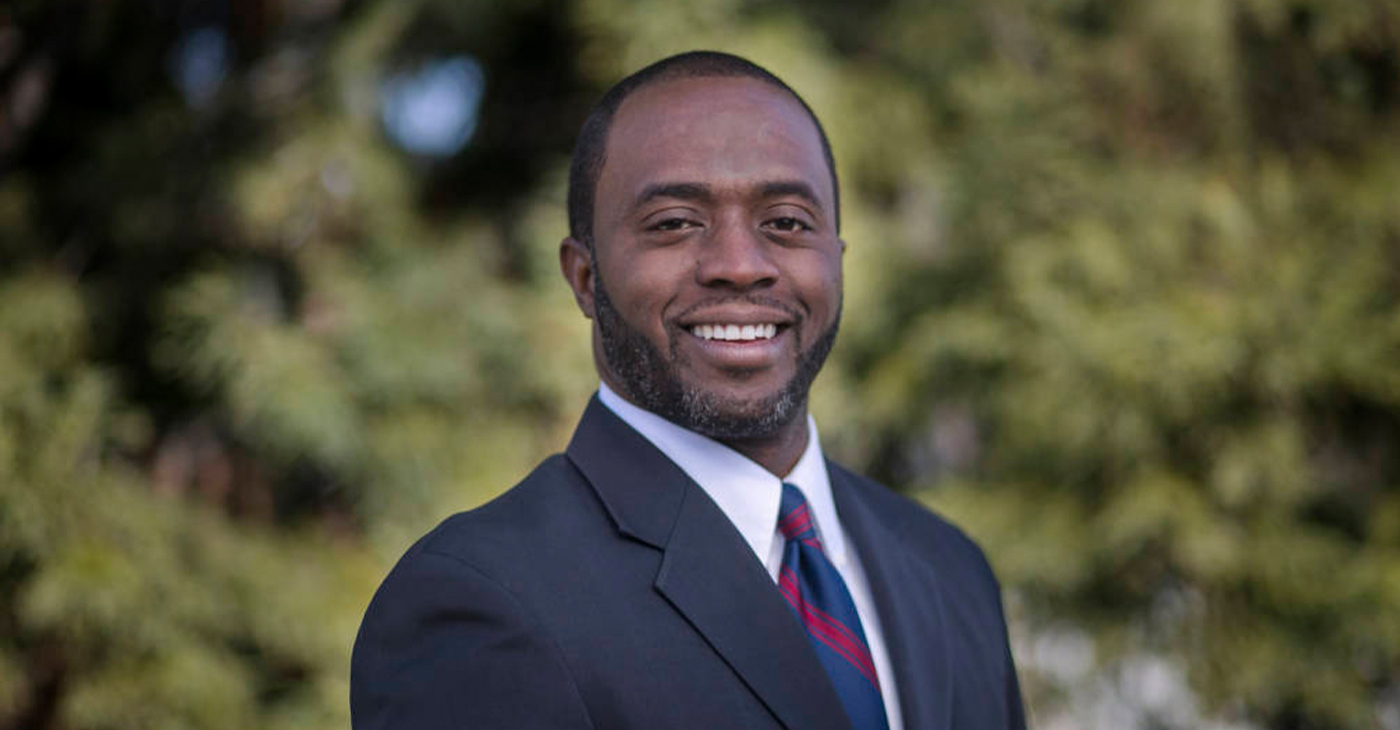
By California Black Media
State Superintendent of Public Instruction (SSPI) Tony Thurmond is advocating for comprehensive training for teachers in reading and math, emphasizing the urgent need to improve student academic outcomes across California.
On April 24, during testimony in the Senate Education Committee, Thurmond backed Senate Bill (SB)1115, which aims to provide evidence-backed educator training. The committee passed the bill with a 7-0 vote.
Thurmond pointed out to the committee that existing funding for educator training in literacy and math only covers about one-third of California’s educator workforce. SB 1115, Thurmond said, would fund the remaining two-thirds.
“This is an issue of moral clarity,” according to Thurmond. “In the fifth-largest economy in the world, and in an age when we have access to substantial brain science about how students learn, it should be unacceptable to train only some educators in the best strategies to teach essential skills.”
SB 1115 incorporates multiple research-backed methods, including phonics, and it aligns with the California ELA/ELD Framework, which encourages biliteracy and multilingualism.
Thurmond emphasized the moral imperative behind the push for enhanced training by noting that 70% of incarcerated adults struggle with reading or are illiterate.
“Every child should feel supported as they learn to read and every teacher should feel confident in their ability to support students’ foundational literacy,” Thurmond said. “SB 1115 is about ensuring that all children have the opportunity to read by third grade, and that all children have a shot at the life-changing outcomes that come from early literacy.”
The next step for SB 1115 is a hearing in the Senate Appropriations Committee on May 6.
-

 Community2 weeks ago
Community2 weeks agoFinancial Assistance Bill for Descendants of Enslaved Persons to Help Them Purchase, Own, or Maintain a Home
-

 Activism4 weeks ago
Activism4 weeks agoOakland Post: Week of April 3 – 6, 2024
-

 Business2 weeks ago
Business2 weeks agoV.P. Kamala Harris: Americans With Criminal Records Will Soon Be Eligible for SBA Loans
-

 Community2 weeks ago
Community2 weeks agoAG Bonta Says Oakland School Leaders Should Comply with State Laws to Avoid ‘Disparate Harm’ When Closing or Merging Schools
-

 Activism3 weeks ago
Activism3 weeks agoOakland Post: Week of April 10 – 16, 2024
-

 Community2 weeks ago
Community2 weeks agoOakland WNBA Player to be Inducted Into Hall of Fame
-

 Community2 weeks ago
Community2 weeks agoRichmond Nonprofit Helps Ex-Felons Get Back on Their Feet
-

 Community2 weeks ago
Community2 weeks agoRPAL to Rename Technology Center for Retired Police Captain Arthur Lee Johnson

